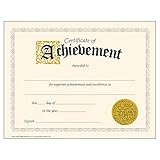
The process of emission testing and obtaining a certification has become an essential part of maintaining the environmental standards in our modern society. Regulations regarding air pollution control demand that vehicles undergo regular inspections to ensure compliance with emission standards. However, have you ever wondered about the lifespan of these crucial smog certificates?
Knowing the duration for which a smog certificate remains valid is vital for vehicle owners and the authorities alike. It is imperative to stay aware of the timeline within which a newly acquired emission test certificate retains its validity, as failing to comply with this regulation can result in penalties and fines. Therefore, understanding the validity period becomes an integral aspect of responsible vehicle ownership.
While it is easy to assume that the validity period of smog certificates is consistent across regions, it is important to note that various factors contribute to the duration of validity. These factors can vary depending on the local environmental standards, government regulations, and the type of vehicle being tested. This variation necessitates a thorough understanding of the specific rules and guidelines governing the validity period in your specific jurisdiction.
Smog Certificates Expiry Duration
Discover the validity period of smog certificates and understand how long they remain effective.
In the world of vehicle inspections, it is essential to have a comprehensive understanding of the expiration duration for smog certificates. These certificates serve as proof that a vehicle meets the required emissions standards. Just like any other official document, smog certificates have a specified period of validity, after which they become outdated and need to be renewed.
As a responsible vehicle owner, staying informed about the duration of smog certificates is vital. It ensures that you comply with the regulations set by state authorities and keep your vehicle legally roadworthy. However, please note that the specific duration may vary depending on the region you reside in, as different areas may have different policies and regulations in place.
- Validity periods for smog certificates typically range from one to two years.
- Renewal requirements vary based on state laws.
- Be sure to check the expiration date on your smog certificate to stay up to date.
- Renewing your smog certificate on time helps maintain the environmental integrity of your vehicle.
- Failure to renew an expired smog certificate can result in penalties or fines.
By understanding the expiration duration of smog certificates, you can ensure that your vehicle remains compliant with emissions standards and contributes to a cleaner and healthier environment.
Understanding the Expiration Period and Renewal Process
When it comes to ensuring the compliance of vehicles with emissions standards, it is essential to be aware of the expiration period and renewal process associated with the required certificates. By understanding these aspects, vehicle owners can guarantee that their vehicles meet the necessary emissions standards and avoid any penalties or restrictions.
Expiration Period
The expiration period refers to the length of time during which a smog certificate remains valid. This period is determined by regulations and varies depending on the jurisdiction or state where the vehicle is registered. It is crucial for vehicle owners to be aware of the specific expiration period applicable to their region to avoid any non-compliance issues.
Renewal Process
The renewal process involves obtaining a new smog certificate once the current one has expired. This process typically requires vehicle owners to take their vehicles to an authorized testing facility where the emissions will be evaluated and measured. Based on the results, a new certificate will be issued if the vehicle meets the necessary emissions standards.
It is important to note that the renewal process may have specific requirements and procedures that can vary depending on the jurisdiction. Vehicle owners should familiarize themselves with these requirements to ensure a smooth and efficient renewal process.
| Key Points: |
|---|
| – Expiration periods vary depending on the jurisdiction |
| – Renewal process involves emissions testing |
| – Familiarize yourself with specific requirements |
| – Non-compliance may result in penalties or restrictions |
Understanding the Expiration Dates of Smog Certificates
In the world of automotive emissions testing, there exist specific timeframes within which smog certificates remain valid. These time limits are crucial for ensuring the ongoing compliance of vehicles and the overall reduction of air pollution. By understanding the expiration dates of smog certificates, vehicle owners can effectively manage their maintenance schedules, stay within legal requirements, and contribute to a cleaner environment.
When it comes to smog certificates, their expiration dates serve as important indicators of when a vehicle is due for a retest to ensure it continues to meet emission standards. These dates reflect the duration within which a particular smog certificate is considered valid by regulatory authorities.
It is essential to pay attention to the expiration dates of smog certificates as they carry legal implications and impact a vehicle owner’s ability to legally operate their automobile. Driving a vehicle with an expired smog certificate can result in fines, penalties, or even the loss of driving privileges. It is, therefore, in the best interest of vehicle owners to proactively monitor the expiration dates of their smog certificates and take necessary actions to stay within compliance.
While the specific length of time that smog certificates are valid can vary, it is typically expressed in a range of months. This time frame acknowledges the fact that emissions standards can change over time, requiring regular retesting to ensure ongoing compliance. The exact duration of validity may depend on factors such as the jurisdiction, the vehicle’s age, and any applicable exemptions or extensions.
When interpreting the expiration date of a smog certificate, it is important to note that it signifies the last day of the month in which the certificate expires. This means that the vehicle owner should prioritize having the necessary emissions testing done well before the stated expiration date to allow for any potential repairs or adjustments that may be needed.
In conclusion, understanding the expiration dates of smog certificates is crucial for vehicle owners to ensure compliance with emission standards. These dates serve as key reminders for when vehicles need to be retested. By maintaining current smog certificates and adhering to expiration dates, vehicle owners contribute to the ongoing efforts to reduce air pollution and uphold legal requirements.
Exploring the Significance of Validity Periods and Potential Consequences of Expired Credentials
When it comes to ensuring the quality of our environment, it is crucial to monitor and control the emission levels that are being released into the air. Various measures have been established, including the requirement for individuals and businesses to obtain specific certificates indicating compliance with emissions standards. These certificates, often referred to as smog certificates, play a significant role in ensuring the overall air quality. However, it is important to understand the importance of validity periods associated with these certificates and the potential consequences of allowing them to expire.
Validity periods refer to the duration for which a smog certificate remains current and legally acceptable. These periods are established to ensure ongoing compliance with emissions standards and allow for periodic inspections to determine if the certificate holder continues to meet the required criteria. Failing to renew or update the certificate within the designated validity period can have various consequences, both for the individuals and businesses involved, as well as for the environment.
Expired smog certificates can result in legal implications, as individuals or businesses found with invalid credentials may face penalties and fines. These consequences are in place to incentivize timely renewal and discourage non-compliance. By holding individuals and businesses accountable for maintaining up-to-date certificates, authorities can ensure a more effective control of emissions and a reduction in air pollution levels.
Beyond the legal consequences, expired smog certificates can have significant environmental impacts. With an expired certificate, there is no assurance that the emissions from vehicles or equipment meet the required standards. This can contribute to increased pollution levels and deteriorating air quality. Considering the negative effects of pollution on human health and the integrity of ecosystems, it becomes evident why ensuring the validity of smog certificates is of utmost importance.
| Potential Consequences of Expiring Smog Certificates: |
|---|
| 1. Legal penalties and fines for individuals and businesses. |
| 2. Increased likelihood of non-compliance with emissions standards. |
| 3. Higher levels of air pollution and potential harm to human health. |
| 4. Negative impact on the environment and ecosystems. |
In conclusion, the validity periods associated with smog certificates play a crucial role in maintaining air quality standards and controlling emissions. Allowing these certificates to expire can have both legal and environmental consequences. It is imperative for individuals and businesses to understand and comply with the renewal requirements to ensure a healthier and more sustainable environment for all.









